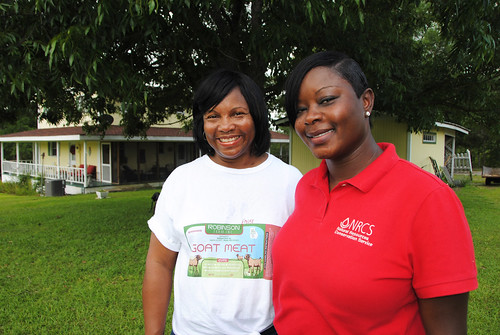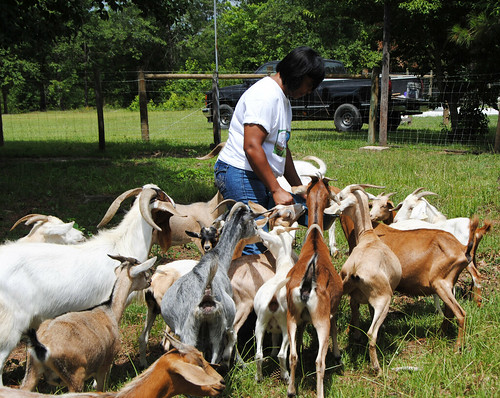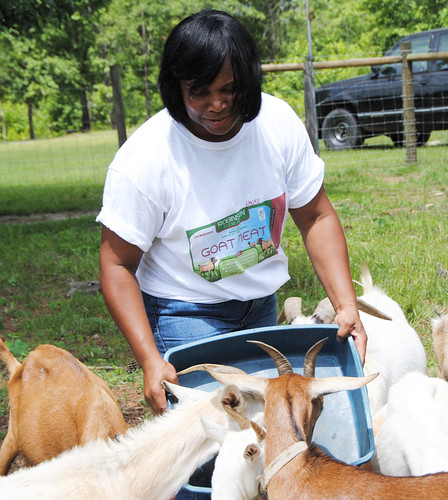
The odds were against Beverly Robinson, but she isn’t one that gives in easily. She didn’t let her newness to farming discourage her from following her dream to raise goats.
“Animals have always been a part of our lives even growing up,” Robinson said. “I developed an innate love for animals, and when I retired, I wanted to go back to one of the things I loved, which was to raise animals.”
In the eight years since she retired as a campus president and moved to Soperton, Georgia to follow her dream, Robinson bought a home and 22 acres. She formed RobinsonHouse Farms, Inc. and began her journey as a goat farmer.
It was tough at first. In an effort to learn more from experts, Robinson attended community meetings and workshops whenever she could. At one of these meetings, she learned about USDA’s Natural Resources Conservation Service (NRCS), and she met Vontice Jackson, a district conservationist with USDA.
“She told me, ‘I’ll be happy to come out,’ and usually when you get that response, it would be the next month. But she was out here the very next day,” Robinson said.
When Jackson visited, she noticed that the farm’s fencing system was old and dilapidated. Once Jackson assessed the situation, she told Robinson about the Environmental Quality Incentives Program, one of the conservation programs offered by NRCS.
EQIP helps farmers implement a variety of conservation practices, including cross-fencing. With cross-fencing, ranchers can alternate goats and other livestock among different pastures, which keeps grass from getting overeaten.

Five paddocks now allow Robinson to rotate her 40 goats on 10 acres to graze, part of a rotational grazing system she’s using on her land. Rotational grazing helps prevent erosion and enables forage to grow healthier.
NRCS also helped Robinson install a heavy-use area around a water trough, where her goats can drink water. A heavy use area is an area of a pasture where a concrete slab or geo-textile fabric has been constructed to protect soil around a water trough. This designated area is able to handle heavy foot traffic when livestock need water. Heavy use areas help prevent soil erosion and protect water quality.

“I’m ecstatic about the assistance I’ve received from NRCS,” Robinson said. “Because of the assistance we’ve received, we’re ready to go, and I’m comfortable that I’m putting quality and healthy meat out there on the market for consumption.”
People purchase goats from RobinsonHouse Farm, Inc. for meat. The farm is also working with restaurants in the Atlanta area. Robinson adds that she is looking forward to targeting local meat and grocery stores to market, also.
Through USDA’s StrikeForce for Rural Growth and Opportunity initiative, NRCS addresses high-priority funding and technical assistance needs in rural communities in 20 states, including Georgia. The initiative is designed to help relieve persistent poverty in high poverty areas like Treutlen County by increasing outreach to farmers in these areas. There are 60 StrikeForce designated counties in Georgia.

